How to Improve Your Memory for Studying
![]()
Whether you’re revising for exams or just want to improve what you remember in class, there are lots of ways to boost brainpower and maximise those memory banks, so here are our top ten tips:
1) Get enough sleep – there’s a reason why parents and teachers go on about getting a good night’s sleep before an exam. Research shows that sleep helps us cement information – which is why some people swear by listening to audio revision notes just as they’re nodding off. Not only that, good sleep means you’re refreshed, alert and ready to focus on the day ahead.
2) Eat well – it’s all about quality rather than quantity but that doesn’t mean you can’t have the occasional treat. Ultimately, a balanced diet is important for your brain and body, but these foods are thought to be particularly beneficial:
- Wholegrains which release sugar slowly, keeping you feeling full for longer, this includes things like brown pasta and brown rice.
- Omega 3 fatty acids found in oily fish like salmon, mackerel and sardines. If you don’t like fish, linseed and chia seeds are good alternatives.
- Purple or deep red fruit and veg such as blueberries, grapes, cranberries and red cabbage, which according to American research improves your short-term memory.
3) Mnemonics – don’t be put off by the spelling (said ni-mon-ik), this simply describes things like rhymes, songs and acronyms that help you remember information. For example, some common mnemonics that many of us have come across include:
- Richard of York gave battle in vain, to remember the colours of the rainbow (red, orange, yellow, green, blue, indigo, violet).
- Never eat shredded wheat, for compass points (north, east, south west).
- FACE for the notes that sit inside the lines on the treble clef.
Needless to say, you don’t need to use ones that already exist and making up your own might make them easier to remember in the first place.
4) Simplify – sometimes subjects are just hard to grasp but breaking everything down into bitesize statements or concepts no matter how silly can help. For example, communism vs capitalism in very simple terms could be summed up as: free sweets for all, no sweets for anyone (unless you can pay for them). Clearly the topics are more complex but understanding the basics should inspire you to recall more.
5) Write it out – writing something out can help fix the idea in your head. Putting what you know on to paper can also lead to spin off ideas that help you expand on the subject. It doesn’t have to be straight text – mind maps, charts and diagrams are other great ways to make something stick in your mind.
6) Say it out loud – as well as writing it, say it. Canadian research shows that saying something out loud secures it into our long-term memories.
7) Condense – when you’re confident about a topic, try condensing it onto a flash card using just bullet points. Each point should jog your memory on a key idea or aspect of that subject.
8) Teach others – explaining something to someone else who has no knowledge of the subject makes it clear whether or not you really understand it, and if you can’t answer any questions they ask, it’s probably time to hit the books again.
9) Socialise – when you’re revising or studying, it’s important not to let it take over your life. Taking a break is a good thing – helping you relax and in turn, keeping you fresh and alert.
10) Exercise your brain and body – exercise can help improve your memory so it’s important to keep exercising even if you’re in the middle of revising for exams. But it’s not just your body you need to keep active, while your brain isn’t a muscle, it’ll benefit just as much from a mental workout. Whether you choose crosswords, Sudoku puzzles, learn a new language or take up a musical instrument, challenging yourself is the best way to keep your brain working at peak performance.
Help when you need it
Revising is one thing but if you’re struggling with a certain subject in the first place, it’s crucial to ask for help. At The Community Schools, we offer one to one and small group tuition, and support students as individuals each with a different learning style.
To find out more about how we can help email us at claire@thecommunityschools.co.uk and we’ll come back to you as soon as we can.
Last Updated on March 9, 2021
